The Best Captains in ‘Star Trek’ History, Ranked
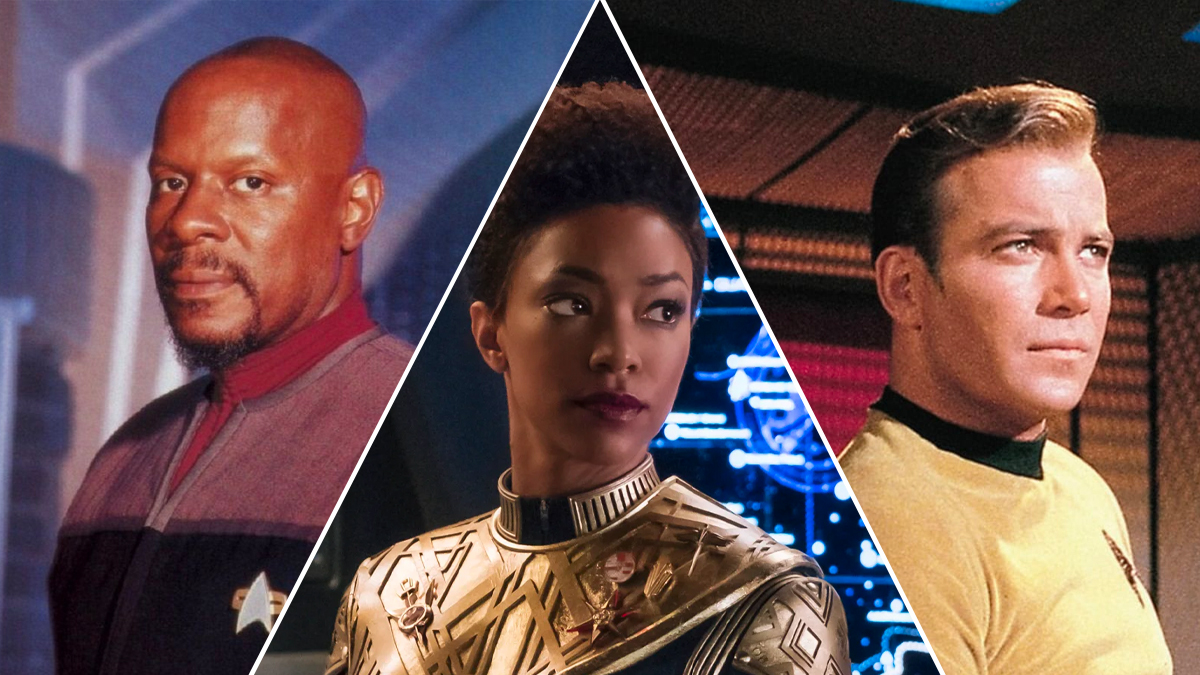
When it comes to Star Trek, the captain sets much of the tone for the series. Whether they take to the helm with a suave, debonair calm, or a hard, gritty determination to do right by their crew, it makes a huge difference to the overall vibe of the show. However, there are a lot more captains in the Star Trek universe than those who have commanded the headliner vessels, and some of them could definitely outshine those headliners if they were given the chance.
Here’s our completely subjective list of the top 14 Star Trek captains—whether they got a whole series dedicated to their ship or only made a brief appearance in someone else’s story.
14. Jonathan Archer
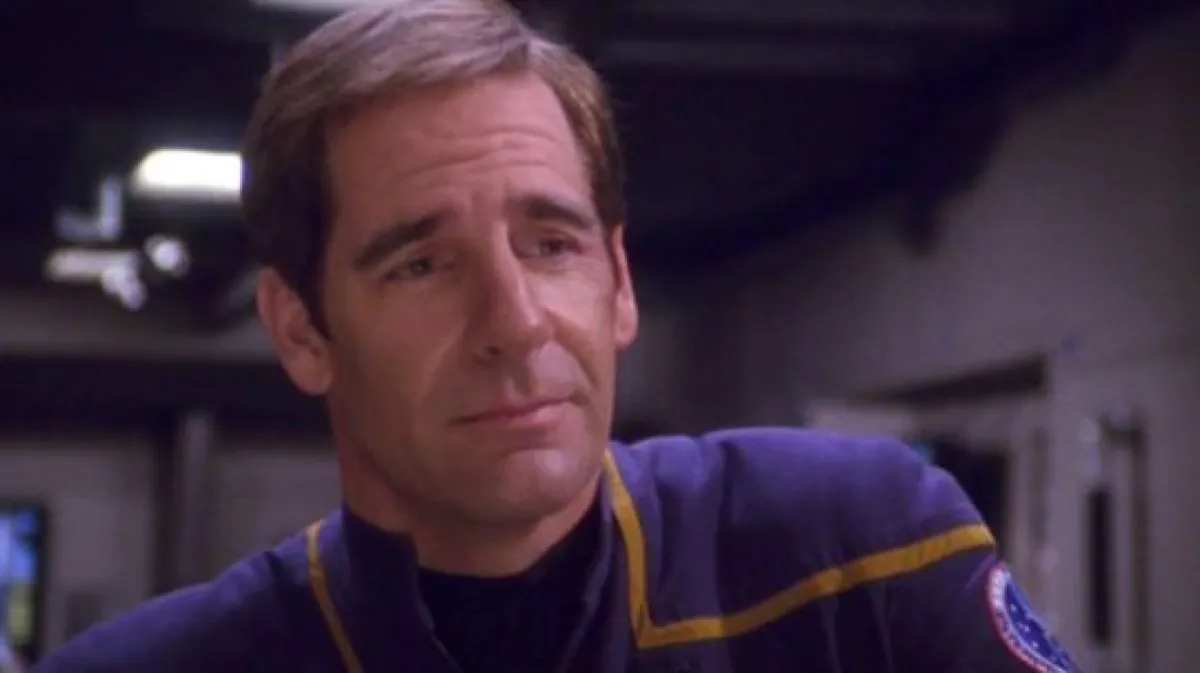
Captain Archer (Scott Bakula) from Enterprise is the worst Captain from the worst Star Trek series, and I will not be taking any notes on that. It’s not just that he’s brash, arrogant, and over confident—I’d have to condemn most of the people on this list if that were the case—he’s also an unapologetic bigot for most of the show, and apparently incapable of respecting alien cultures unless they they involve sexual slavery. Archer managed some impressive military feats, but outside of that he’s a bad captain and, frankly, a bad person.
Partly a result of the ugly, jingoistic philosophy underlying Enterprise, every decision Archer makes seems to violate the spirit of Star Trek. From his adamant defense of the harmful side of the ban on genetic engineering in “Cold Station 12” (something every other series criticizes) to his entirely inappropriate behavior in diplomatic contexts (see: everything about “A Night in Sickbay”), Archer has an unthinking adherence to the human-centric status quo with no respect for difference.
Where Archer really lost me, however, was in “Cogenitor,” when he denies asylum to an alien reproductive slave and then blames their suicide on Tripp for giving them false hope. It’s not just his decision to deny asylum—there have been other episodes in other Trek series when captains faced similar dilemmas without coming out of it looking like an absolute monster—or his absolute fury with Tripp for thinking it was the right thing to do based on his own, erratic relationship with the rules. And it’s not just that he was more willing to ruin diplomatic relations with another species over his dog—at greater cost to the ship than a living, thinking person looking to escape a life of abject torture. It’s that he equated the loss of the congenitor’s life with the time their enslavers would have to wait before being assigned a new victim to impregnate, and justified it with cultural relativism. There’s no coming back from that.
13. Every other Starfleet Captain not listed by name
I will also not be taking any notes on this one. Archer is literally the worst and the only reason I haven’t listed every single other captain in existence ahead of him is because we don’t know enough about them to fill out an entry. Am I saying I’m confident even the unnamed captains we know literally nothing about are better captains than Archer? Yes. Yes I am.
12. Kelvin-verse Captain Kirk
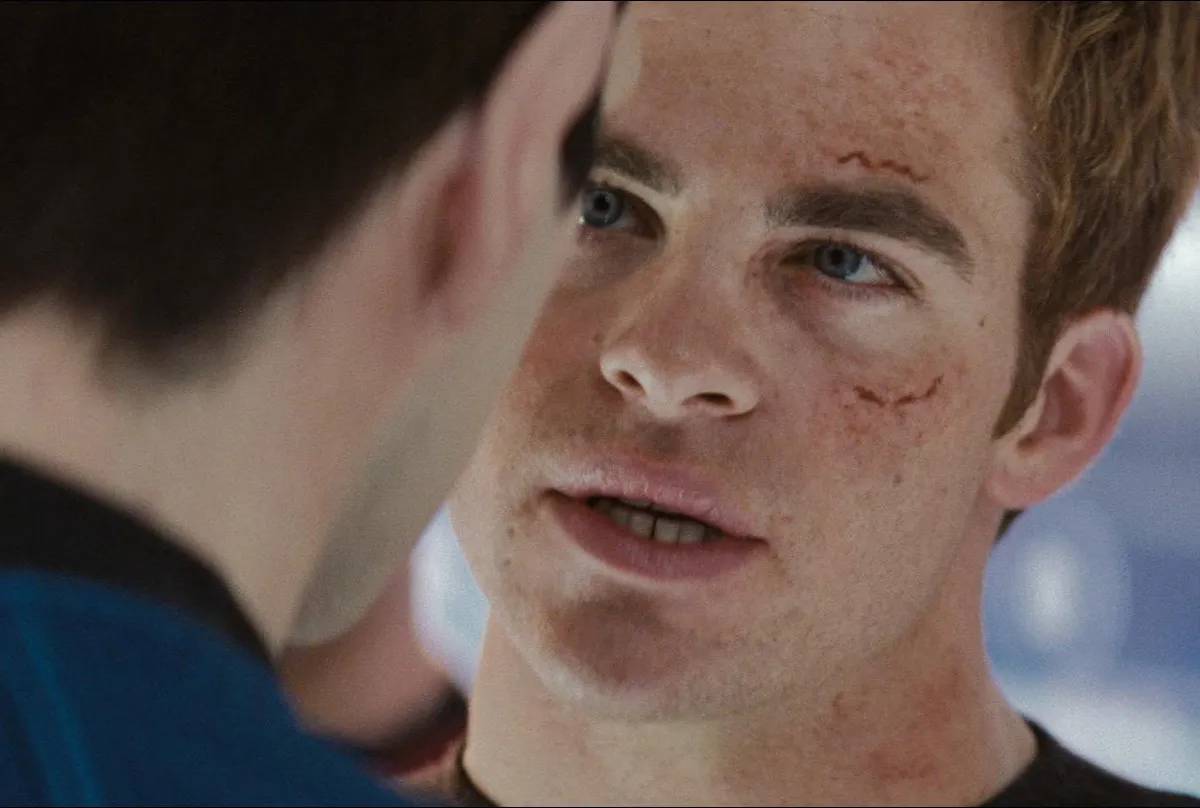
Honestly, Chris Pine’s Captain Kirk is very appealing, and when he gets going he can achieve quite a lot. The problem is that, unlike original Kirk, there’s not an actual thought in his head. It’s a full-on head empty, no thoughts here kind of situation, which is a problem in a captain. Kelvin-verse Kirk is sweet—a himbo, if you will—and he’s loyal, brave, and self-sacrificing. But he doesn’t make good decisions or think things through at all before he acts. When you’re a captain, you have to act in the best interest of your crew, and Kirk is really bad at remembering he’s responsible for other people. Still, he’s a better captain than Captain Archer. (I think protozoa would be a better captain than Archer, but that’s neither here nor there.) Kelvin Kirk tries hard, and he manages to pull through with a shouldn’t-work hail Mary every time, so he does make it onto the list.
11. Carol Freeman
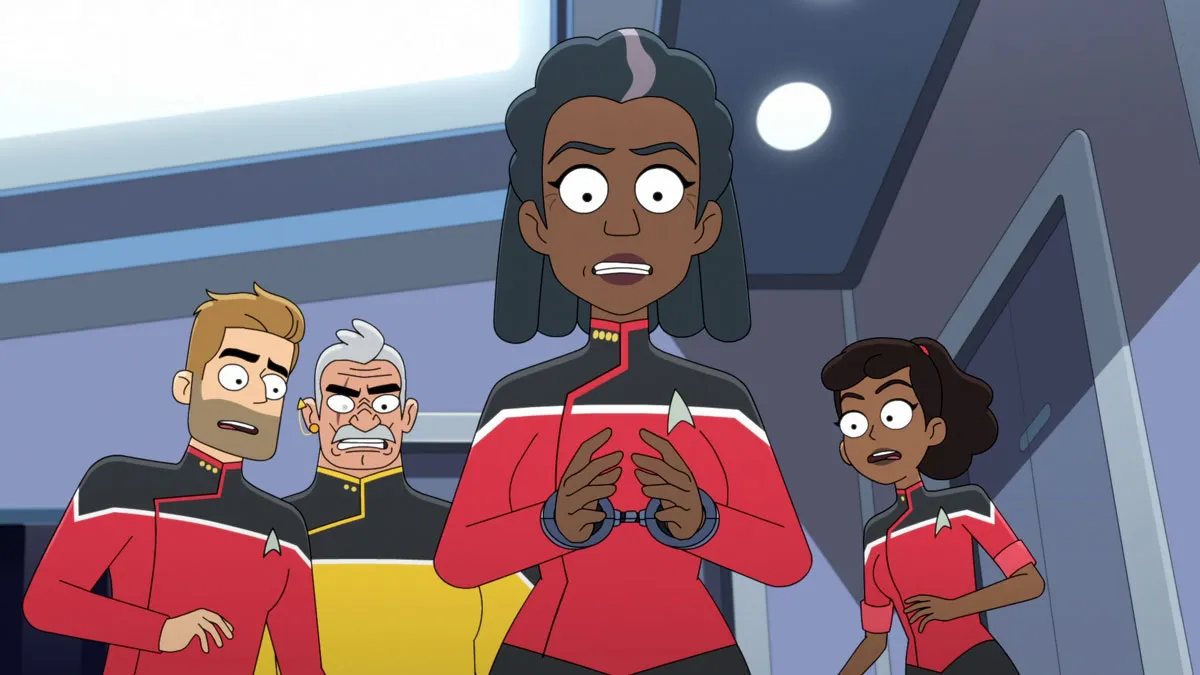
Captain of the Cerritos, and Ensign Beckett Mariner’s mother, Captain Freeman of Star Trek: Lower Decks (LDS) clocks in at number 11 on this list partly because we don’t know much about her outside of the contentious relationship with her daughter—a relationship that sometimes leads to Freeman making bad decisions for the ship and Mariner both. But hey, parent-child relationships are complex and there’s a reason you’re not supposed to serve under or command members of your own family (and, you know, maybe Mariner’s Dadmiral could take a turn instead of backseat driving for a change).
Given that she was unaware of buffer time and its importance in keeping any organization functioning (“Temporal Edict”), despite the fact that she was presumably an Ensign herself at one time and so would have relied on it, I do have some questions about her command style. It’s an issue apparently shared by Starfleet in “Kayshon, His Eyes Open,” where she was called out in a performance evaluation for micromanagement. However, Freeman’s combination of patience and pragmatism give her an edge in a lot of diplomatic situations, and she’s damn loyal to her ship and crew, getting her a pretty solid rating overall. You’ve got to love a captain who appreciates an under-appreciated ship and recognizes the value in her crew even when other people don’t.
10. Philippa Georgiou

Ah Georgiou, my love, you were taken from us too soon. A phenomenal captain, Phillippa Georgiou (Michelle Yeoh) was brave, compassionate and incredibly inventive, with an adaptable, tactical mind. Knowing when to bend the rules to get the best outcome for both her people and the Federation, she struck a balance between careful strategy and on-the-fly decision-making that took her pretty far before her death. Despite the experiences that left her battle-hardened, Georgiou never lost her faith in humanity or individuals of other species, giving her the ability to help and guide Michael Burnham and other crew members who were struggling, and leaving a lasting impression after she was gone.
9. The Original James T. Kirk
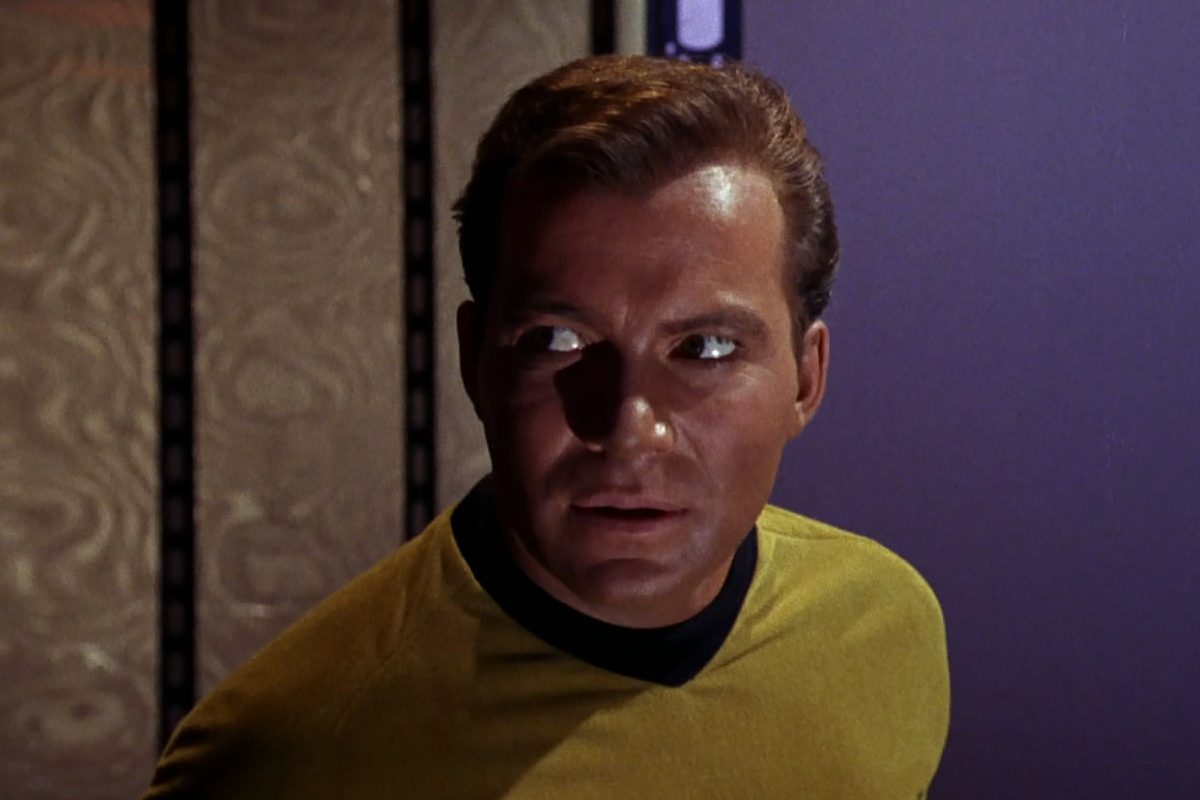
The original Captain Kirk is a high-achiever. Sure, the man gets spectacular results, and that counts for a lot here, but he’s not the most responsible of leaders in the Star Trek universe. While his willingness to take huge risks and act out of instinct allowed him to pull off seemingly impossible things—going back in time to save the whales (Star Trek IV: The Voyage Home), defeating the Greek god Apollo (TOS, “Who Mourns for Adonais?”), and bringing Spock back from the dead (Star Trek III: The Search for Spock)—he also got so many low-ranking crewmen killed that the entire Red Shirt trope is named after him.
Kirk tries to balance his duty as a Starfleet officer with his own sense of compassion and strong moral compass, but his tendency to lean on instinct and emotion when making decisions sometimes backfires spectacularly (see: everything involving Kahn). At the same time, his intense emotional investment in his ship and crew and tendency to prioritize justice and ethics over Federation rules produced an incredibly loyal crew who were willing to go to the ends of the earth for him—without which the Klingon-Federation peace process would have fallen apart.
8. William Riker
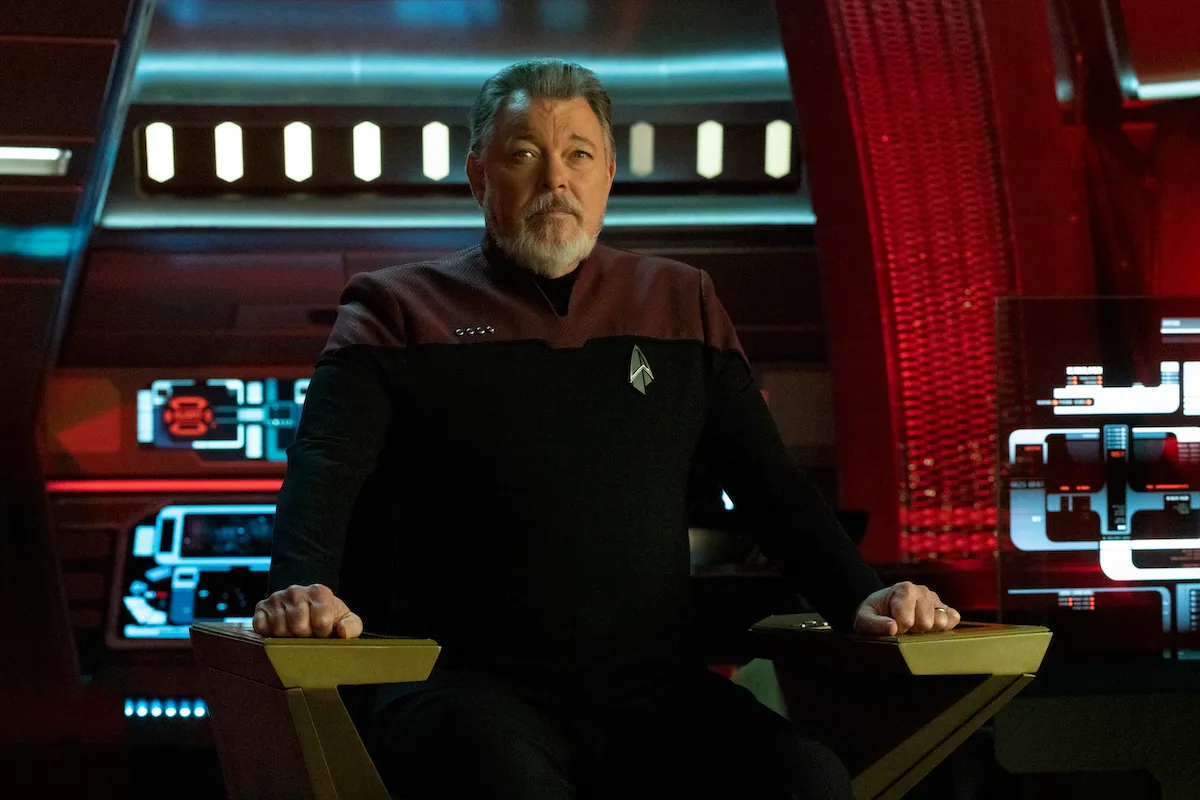
Like Sulu, Riker was an excellent officer and an extremely competent captain. His irreverent, cheerful disposition and (before settling down with Troi) womanizing tendencies in The Next Generation often see him written off as frivolous and irresponsible, but this couldn’t be further from the truth. Riker is a deeply empathic, compassionate man with a strong sense of justice and responsibility who takes his captaincy duties very seriously. Though we only get to see his more chaotic and wild moments in Lower Decks (a result of the series’ overall tone), the tie-in novels show a different, more serious side.
Riker’s achievements as captain include aiding the Romulans in restructuring their society (Taking Wing, The Red King), multiple first contact missions, and turning back more than one threat to the entire Alpha Quadrant (Orion’s Hounds, Synthesis).
7. Hikaru Sulu
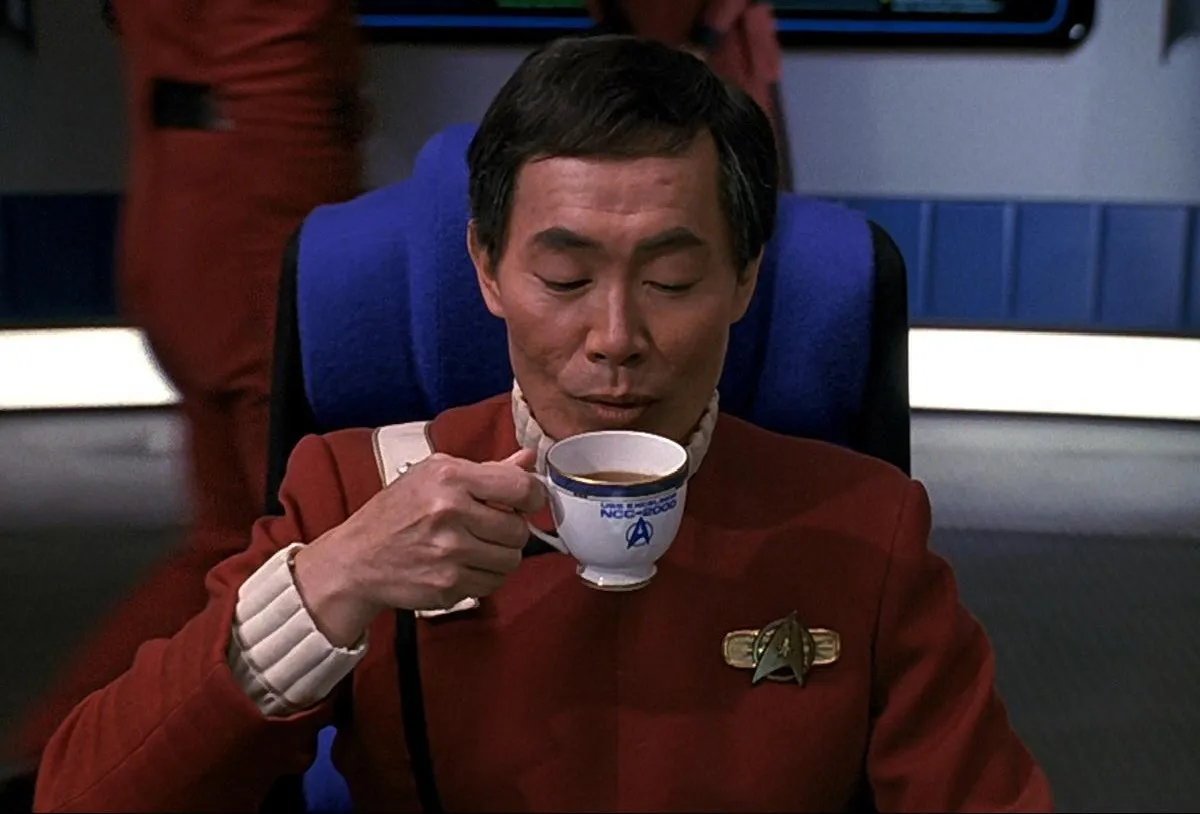
A certified badass, Hikaru Sulu was an incredible officer and an even better captain. Suave, dashing, and incredibly cool in a crisis, Sulu as Captain of the Excelsior was integral to salvaging the Federation-Klingon peace process (Star Trek VI: The Undiscovered Country). Like all the best captains, Sulu knew exactly when to ignore or outright disobey the Federation because the bigger picture called for it—most notably, assisting Kirk and the Enterprise when the former was falsely convicted of murder, and helping him expose the conspiracy behind it.
Sulu was also capable of elaborate and impressive tactical thinking, and took calculated risks (like igniting the volatile gas inside a nebula) that worked out in the Excelsior’s favor. As a leader, Sulu took an individual, respectful approach to his people and their opinions and was willing to explain himself and his decisions when necessary, which led to a loyal, cohesive crew.
6. Tryla Scott

Tryla only made a very brief appearance, but she had to make it onto this list because of all she achieved in her short life. The youngest person to achieve the rank of Captain in Starfleet, Tryla was one of the four officers, including Picard, who realized that Starfleet had been taken over by parasitic aliens (TNG, “Conspiracy”). Unfortunately, Tryla was killed before she managed to fulfill her potential, as one of the aliens took control of her body and attempted to kill Picard and Riker through her, leading to Riker killing her in self-defense. Still, everything Tryla managed to achieve before her death secures her a place on this list.
5. Christopher Pike

Brave and principled, Christopher Pike served as captain and mentor to both Spock and—in the alternative Kelvin timeline—Kirk. Initially a stickler for the rules, Pike learned to be adaptable, and when the greater good required him to bend or flout Starfleet regulations, he would do what the situation called for—even to the point of being willing to lie to Starfleet Command. What made Pike a truly stand-out captain, however, were his actions after receiving a vision of the future in the monastery on Boreth (Discovery, “Through the Valley of the Shadows”). After being shown the horrible fate that awaited him if he completed the mission and continued serving in Starfleet, and being given the opportunity to back down and save himself instead, Pike consistently chose duty—not just sacrificing himself, but also living with the knowledge of what would happen to him for years before it finally did.
4. Michael Burnham
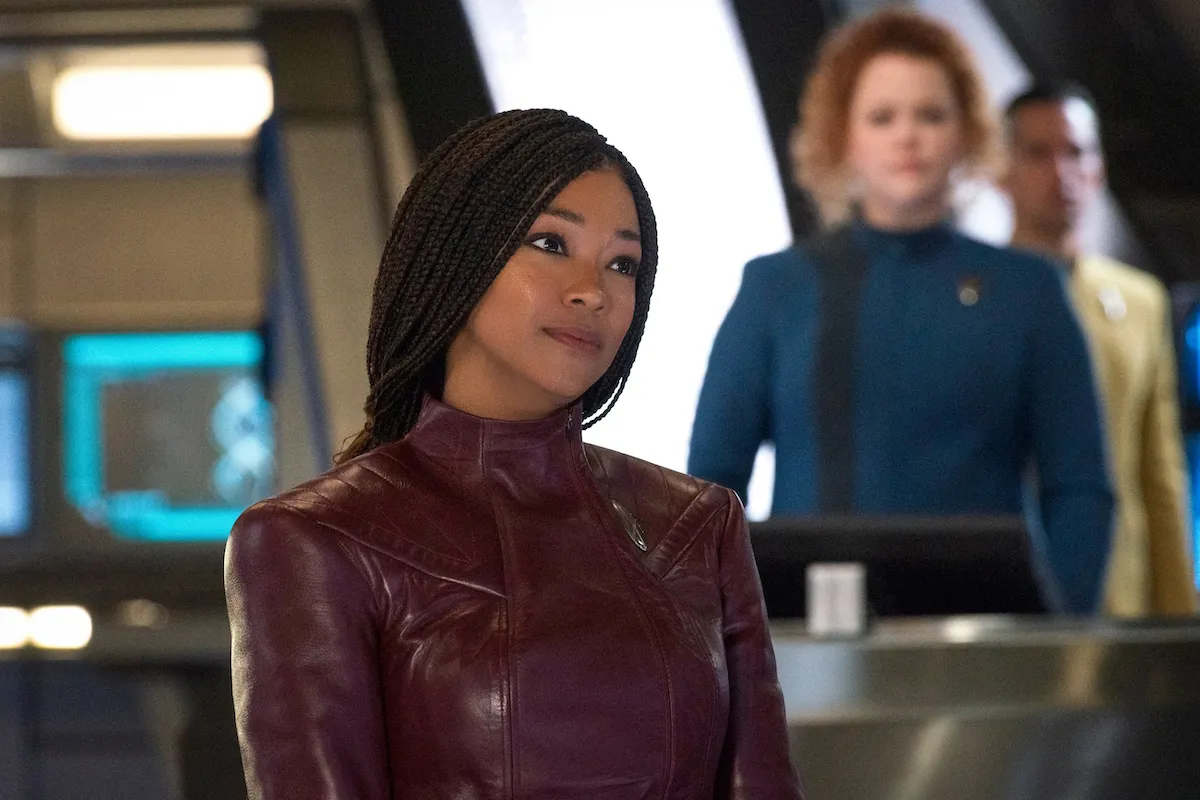
Michael Burnham’s captaincy was hard won and a long time coming (three seasons into Discovery), but it was thoroughly deserved. Not only had Burnham played a key part in destroying the Emerald Chain (allowing for the reformation of the Federation), but she’d also demonstrated impressive leadership capabilities again and again. Captain Burnham continued to be a solid leader who refused to abandon people in need (“Kobayashi Maru”) and was willing to take on any and all risks in dangerous situations to protect her crew (“Stormy Weather”).
When dealing with non-Federation cultures and civilians, Burnham balanced respect for that culture with respect for individual life and agency, and was unwilling to abandon prisoners to die at the request of civil authorities—but she never forced those who rejected her rescue to accept it, either (“The Examples”). Most importantly, Burnham’s willingness to put her personal feelings aside and do what needed to be done to stop her former partner, Book, and his allies, allowed her and her crew to prevent the genocide of multiple peoples (“Coming Home”), placing her firmly in the top four.
3. Kathryn Janeway
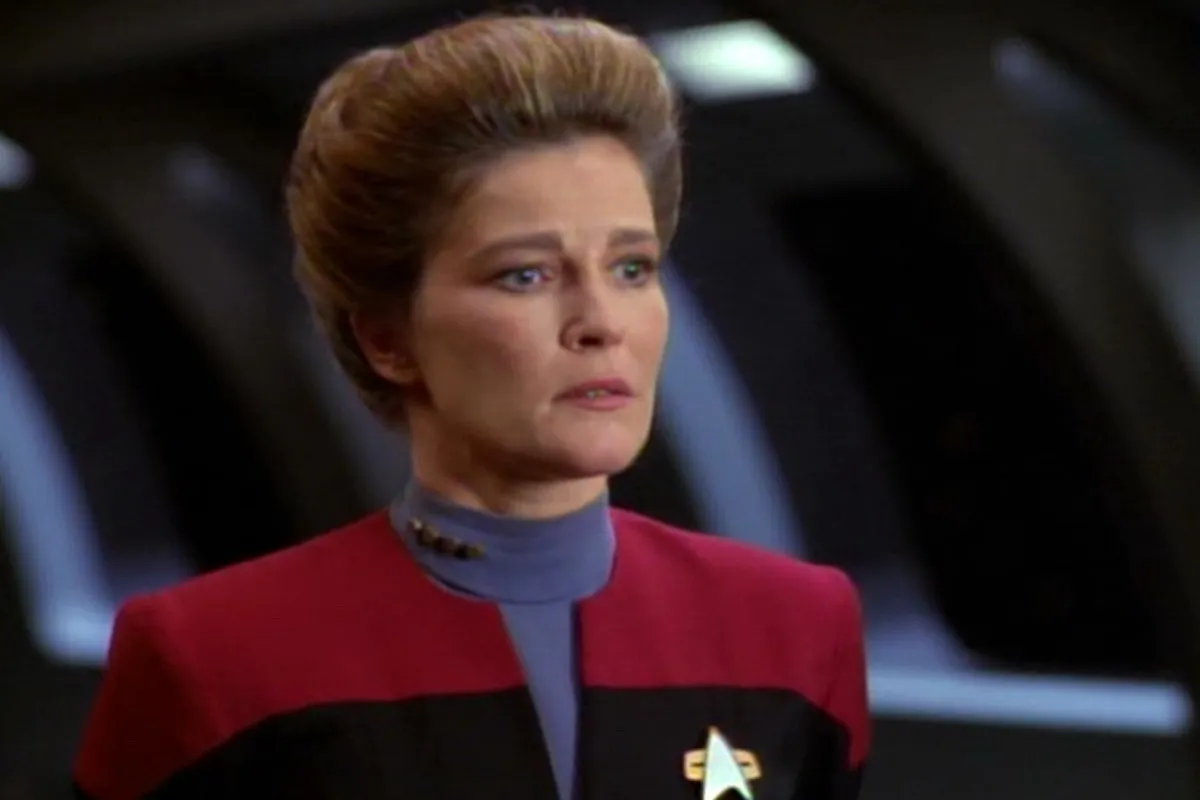
Captain Janeway found herself and her crew stranded on the other side of the universe and promised she was going to get them home no matter what—and then she actually delivered on that promise. She even managed to cut their journey down from 75 years to seven, skilfully merging two ideologically opposed crews into a one well-oiled team, and securing pardons for the former Maquis on their return to the Alpha Quadrant on top of it. Janeway also managed to defeat the Borg several times, and rehabilitated a former drone, something very few Captains can say. Plus, like Picard, she can handle Q pretty well (Voyager, “The Q and the Grey” and “Q2”)
2. Jean-Luc Picard
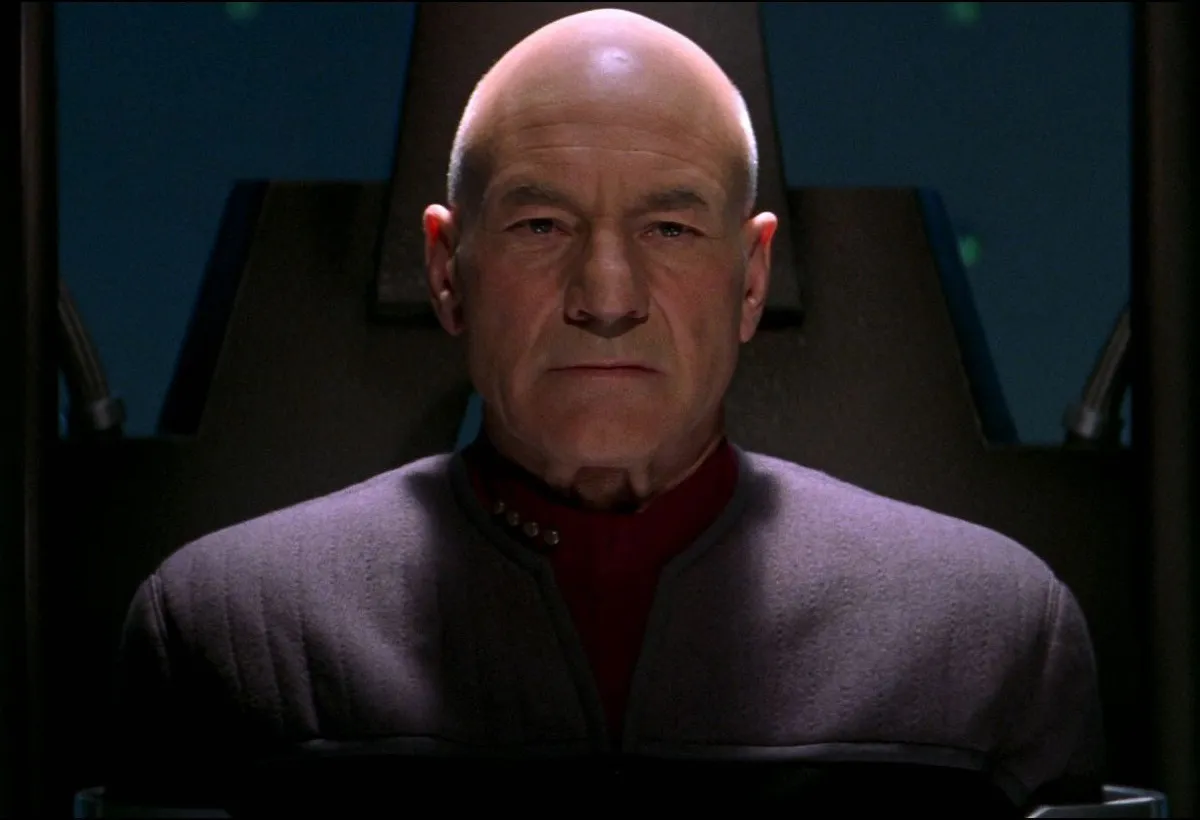
Honestly, Jean-Luc Picard is everyone’s fantasy dad and there’s a reason for it. Combining good sense with a genuine care for everyone under his command, Picard took Kirk’s “no man left behind” policy and implemented it in actual, sensible ways that didn’t regularly kill hordes of red shirts in order to save one named character. More importantly, Picard’s approach to the Prime Directive brings compassion, common sense, and genuine ethics to what is actually a bad policy (it’s better to let people be wiped out than influence their culture? Come on). Picard became an expert at circumventing the Prime Directive without actually breaching it, but when push came to shove, he put the well-being of pre-warp peoples ahead of Federation law. He identified and handled multiple threats to the entire Federation, including a takeover by parasitic aliens (TNG, “Conspiracy”), time-traveling Borg (Star Trek: First Contact), and Shinzon and the Remans’ genocidal plans for earth (Star Trek: Nemesis). He was also capable of recognizing the personhood of created and other non-standard forms of life from the very beginning, fiercely defending Data and other synthetic beings’ rights. Also, he can handle Q, which frankly is a very impressive skill most Starfleet officers don’t have.
1. Benjamin Sisko
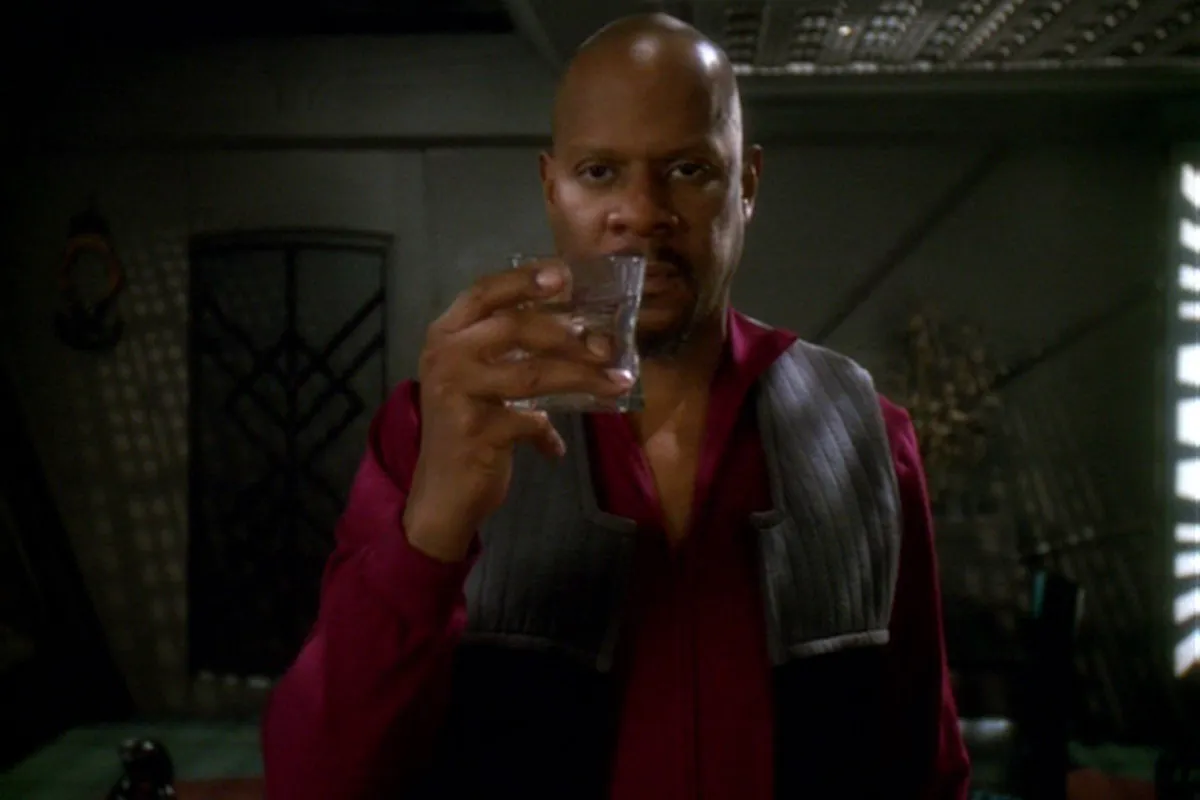
Benjamin Sisko is the best captain and you can fight me on this. Not only did he manage to take a trainwreck of an outpost and turn it into a functioning station, win over Kira Nerys, and thwart Gul Dukat on a regular basis, but he also did all of this while navigating the position of Bajor’s unwilling Messiah (DS9, “Emissary”). Balancing his loyalty to the Federation with his obligations to Bajor, and finding ways to manage the ongoing culture clash aboard the station, Sisko solved problems with creative thinking and a willingness to put his money where his mouth is. When the Dominion war began, Sisko found himself in a lynchpin position for defending the Alpha Quadrant, facing some of the hardest choices of anyone in Starfleet. Despite this, he never shied away from doing what needed to be done, nor did he sugarcoat his actions later—even to himself (“In the Pale Moonlight”).
Sisko always did what needed to be done, held together precarious situation after precarious situation, and took personal care of the people serving under him while he did it. The fact that his last mortal act was saving the entire Alpha Quadrant by defeating an evil god (“What You Leave Behind”) is just icing on the best captain cake.
(featured image: Paramount)
Have a tip we should know? [email protected]
